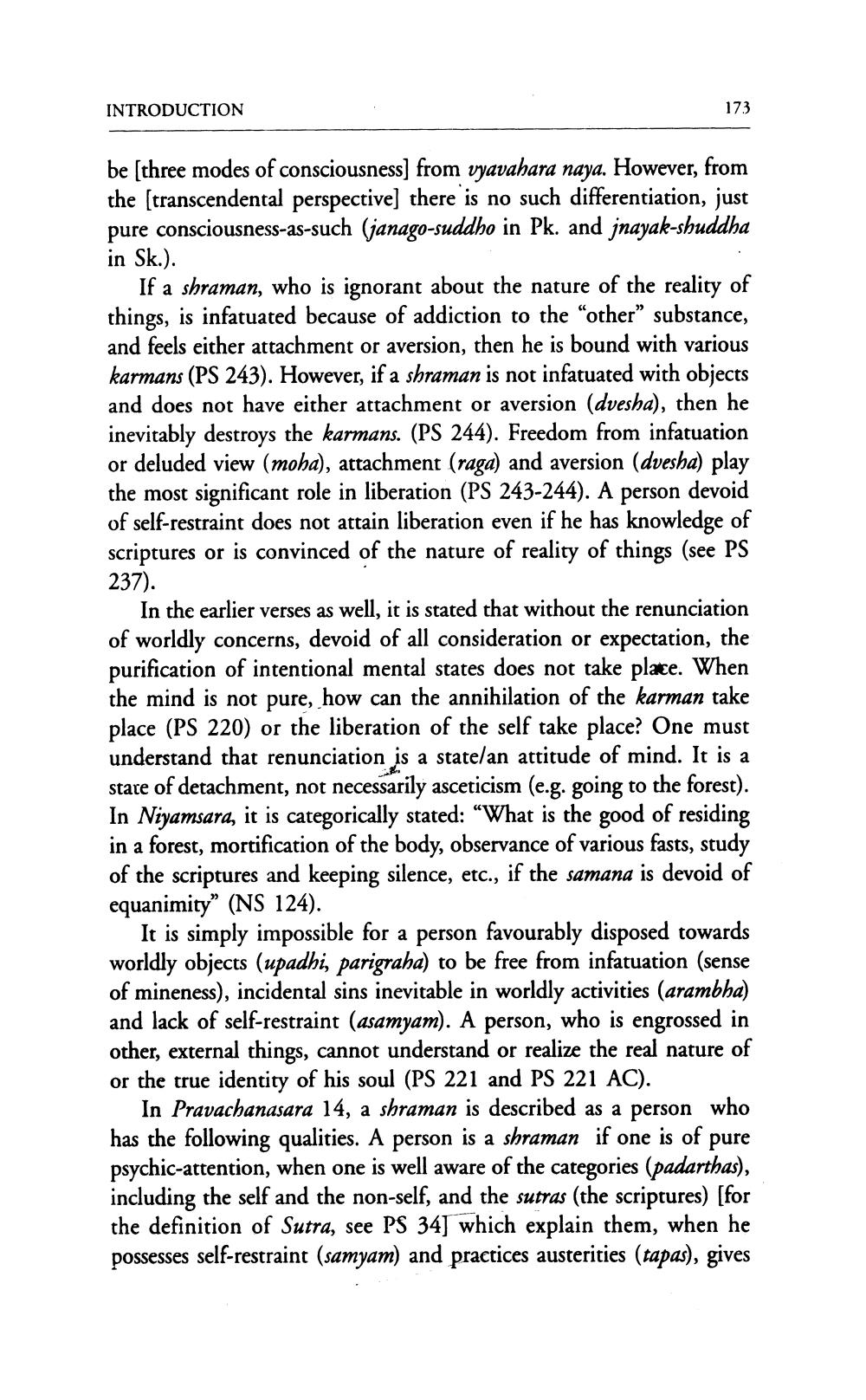________________
INTRODUCTION
173
be (three modes of consciousness) from vyavahara naya. However, from the (transcendental perspective) there is no such differentiation, just pure consciousness-as-such (janago-suddho in Pk. and jnayak-shuddha in Sk.).
If a shraman, who is ignorant about the nature of the reality of things, is infatuated because of addiction to the “other” substance, and feels either attachment or aversion, then he is bound with various karmans (PS 243). However, if a shraman is not infatuated with objects and does not have either attachment or aversion (dvesha), then he inevitably destroys the karmans. (PS 244). Freedom from infatuation or deluded view (moha), attachment (raga) and aversion (dvesha) play the most significant role in liberation (PS 243-244). A person devoid of self-restraint does not attain liberation even if he has knowledge of scriptures or is convinced of the nature of reality of things (see PS 237).
In the earlier verses as well, it is stated that without the renunciation of worldly concerns, devoid of all consideration or expectation, the purification of intentional mental states does not take place. When the mind is not pure, how can the annihilation of the karman take place (PS 220) or the liberation of the self take place? One must understand that renunciation is a state/an attitude of mind. It is a stare of detachment, not necessarily asceticism (e.g. going to the forest). In Niyamsara, it is categorically stated: “What is the good of residing in a forest, mortification of the body, observance of various fasts, study of the scriptures and keeping silence, etc., if the samana is devoid of equanimity” (NS 124).
It is simply impossible for a person favourably disposed towards worldly objects (upadhi, parigraha) to be free from infatuation (sense of mineness), incidental sins inevitable in worldly activities (arambha) and lack of self-restraint (asamyam). A person, who is engrossed in other, external things, cannot understand or realize the real nature of or the true identity of his soul (PS 221 and PS 221 AC).
In Pravachanasara 14, a shraman is described as a person who has the following qualities. A person is a shraman if one is of pure psychic-attention, when one is well aware of the categories (padarthas), including the self and the non-self, and the sutras (the scriptures) [for the definition of Sutra, see PS 34) which explain them, when he possesses self-restraint (samyam) and practices austerities (tapas), gives




